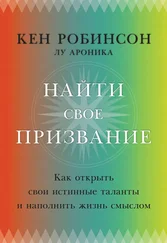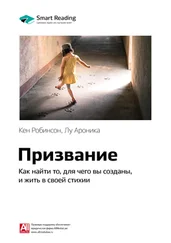Кен Робинсон - The Element
Здесь есть возможность читать онлайн «Кен Робинсон - The Element» весь текст электронной книги совершенно бесплатно (целиком полную версию без сокращений). В некоторых случаях можно слушать аудио, скачать через торрент в формате fb2 и присутствует краткое содержание. Год выпуска: 2009, ISBN: 2009, Издательство: Penguin Books Ltd, Жанр: Самосовершенствование, на английском языке. Описание произведения, (предисловие) а так же отзывы посетителей доступны на портале библиотеки ЛибКат.
- Название:The Element
- Автор:
- Издательство:Penguin Books Ltd
- Жанр:
- Год:2009
- ISBN:9780141911250
- Рейтинг книги:3 / 5. Голосов: 1
-
Избранное:Добавить в избранное
- Отзывы:
-
Ваша оценка:
- 60
- 1
- 2
- 3
- 4
- 5
The Element: краткое содержание, описание и аннотация
Предлагаем к чтению аннотацию, описание, краткое содержание или предисловие (зависит от того, что написал сам автор книги «The Element»). Если вы не нашли необходимую информацию о книге — напишите в комментариях, мы постараемся отыскать её.
The Element — читать онлайн бесплатно полную книгу (весь текст) целиком
Ниже представлен текст книги, разбитый по страницам. Система сохранения места последней прочитанной страницы, позволяет с удобством читать онлайн бесплатно книгу «The Element», без необходимости каждый раз заново искать на чём Вы остановились. Поставьте закладку, и сможете в любой момент перейти на страницу, на которой закончили чтение.
Интервал:
Закладка:
Still, some educators and psychologists took—and continue to take—IQ numbers to absurd lengths. In 1916, Lewis Terman of Stanford University published a revision of Binet’s IQ test. Known as the Stanford‐Binet test, now in its fifth version, it is the basis of the modern IQ test. It is interesting to note, though, that Terman had a sadly extreme view of human capacity. These are his words, from the textbook The Measurement of Intelligence : “Among laboring men and servant girls there are thousands like them feebleminded. They are the world’s ‘hewers of wood and drawers of water.’ And yet, as far as intelligence is concerned, the tests have told the truth.… No amount of school instruction will ever make them intelligent voters or capable voters in the true sense of the word.”
Terman was an active player in one of the darker stages of education and public policy, one there is a good chance you are unaware of because most historians choose to leave it unmentioned, the way they might a crazy aunt or an unfortunate drinking incident in college. The eugenics movement sought to weed out entire sectors of the population by arguing that such traits as criminality and pauperism were hereditary, and that it was possible to identify these traits through intelligence testing. Perhaps most appalling among the movement’s claims was the notion that entire ethnic groups, including southern Europeans, Jews, Africans, and Latinos fell into such categories. “The fact that one meets this type with such frequency among Indians, Mexicans, and Negroes suggests quite forcibly that the whole question of racial differences in mental traits will have to be taken up anew and by experimental methods,” Terman wrote.
“Children of this group should be segregated in special classes and be given instruction which is concrete and practical. They cannot master, but they can often be made efficient workers, able to look out for themselves. There is no possibility at present of convincing society that they should not be allowed to reproduce, although from a eugenic point of view they constitute a grave problem because of their unusually prolific breeding.”
The movement actually managed to succeed in lobbying for the passage of involuntary sterilization laws in thirty American states. This meant that the state could neuter people who fell below a particular IQ without their having any say in the matter. That each state eventually repealed the laws is a testament to common sense and compassion. That the laws existed in the first place is a frightening indication of how dangerously limited any standardized test is in calculating intelligence and the capacity to contribute to society.
IQ tests can even be a matter of life and death. A criminal who commits a capital offense is not subject to the death penalty if his IQ is below seventy. However, IQ scores regularly rise over the course of a generation (by as much as twenty‐five points), causing the scale to be reset every fifteen to twenty years to maintain a mean score of one hundred. Therefore, someone who commits a capital offense may be more likely to be put to death at the beginning of a cycle than at the end. That’s giving a single test an awful lot of responsibility.
People can also improve their scores through study and practice. I read a case recently about a death row inmate who’d at that point spent ten years in jail on a life sentence (he wasn’t the trigger man, but he’d been involved in a robbery where someone died). During his incarceration, he took a series of courses. When re‐tested, his IQ had risen more than ten points—suddenly making him eligible for execution.
Of course, most of us won’t ever be in a situation where we’re sterilized or given a lethal injection because of our IQ scores. But looking at these extremes allows us to ask some important questions, namely, What are these numbers? and, What do they truly say about our intelligence? The answer is that the numbers largely indicate a person’s ability to perform on a test of certain sorts of mathematical and verbal reasoning. In other words, they measure some types of intelligence, not the whole of intelligence. And, as noted above, the baseline keeps shifting to accommodate improvements in the population as a whole over time.
Our fascination with IQ is a corollary to our fascination with—and great dependence on—standardized testing in our schools. Teachers spend large chunks of every school year preparing their students for statewide tests that will determine everything from the child’s placement in classes the following year to the amount of funding the school will receive. These tests of course do nothing to take the child’s (or the school’s) special skills and needs into consideration, yet they have a tremendous say in the child’s scholastic fate.
The standardized test that currently has the most impact on a child’s academic future in America is the SAT. Interestingly, Carl Brigham, the inventor of the SAT, was also a eugenicist. He conceived the test for the military and, to his credit, disowned it five years later, rejecting eugenics at the same time. However, by this point, Harvard and other Ivy League schools had begun to use it as a measure of applicant acceptability. For nearly seven decades, most American colleges have used it (or the similar ACT) as an essential part of their screening processes, though some colleges are beginning to rely upon it less.
The SAT is in many ways the indicator for what is wrong with standardized tests: it only measures a certain kind of intelligence; it does it in an entirely impersonal way; it attempts to make common assumptions about the college potential of a hugely varied group of teenagers in one‐size‐fits‐all fashion; and it drives high school juniors and seniors to spend hundreds of hours preparing for it at the expense of school study or the pursuit of other passions. John Katzman, founder of the Princeton Review, offers this stinging criticism: “What makes the SAT bad is that it has nothing to do with what kids learn in high school. As a result, it creates a sort of shadow curriculum that furthers the goals of neither educators nor students.… The SAT has been sold as snake oil; it measured intelligence, verified high school GPA, and predicted college grades. In fact, it’s never done the first two at all, nor a particularly good job at the third.”
Yet students who don’t test well or who aren’t particularly strong at the kind of reasoning the SAT assesses can find themselves making compromises on their collegiate futures—all because we’ve come to accept that intelligence comes with a number. This notion is pervasive, and it extends well beyond academia. Remember the bell‐shaped curve we discussed earlier? It presents itself every time I ask people how intelligent they think they are because we’ve come to define intelligence far too narrowly. We think we know the answer to the question, “How intelligent are you?” The real answer, though, is that the question itself is the wrong one to ask.
How Are You Intelligent?
The right question to ask is the one above. The difference in these questions is profound. The first suggests that there’s a finite way of gauging intelligence and that one can reduce the value of each individual’s intelligence to a figure or quotient of some sort. The latter suggests a truth that we somehow don’t acknowledge as much as we should—that there are a variety of ways to express intelligence, and that no one scale could ever measure this.
The nature of intelligence has always been a matter of controversy, especially among the many professional specialists who spend their lives thinking about it. They disagree about what it is, about who has it, and about how much of it is out there. In a survey conducted in the United States several years ago, a sample of psychologists attempted to define intelligence, choosing and commenting from a list of twenty‐five attributes. Only three were mentioned by 25 percent or more of the respondents. As one commentator put it, “If we were asking experts to describe edible field mushrooms so we could distinguish them from the poisonous kinds and the experts responded like this, we might consider it prudent to avoid the subject altogether.”
Читать дальшеИнтервал:
Закладка:
Похожие книги на «The Element»
Представляем Вашему вниманию похожие книги на «The Element» списком для выбора. Мы отобрали схожую по названию и смыслу литературу в надежде предоставить читателям больше вариантов отыскать новые, интересные, ещё непрочитанные произведения.
Обсуждение, отзывы о книге «The Element» и просто собственные мнения читателей. Оставьте ваши комментарии, напишите, что Вы думаете о произведении, его смысле или главных героях. Укажите что конкретно понравилось, а что нет, и почему Вы так считаете.












